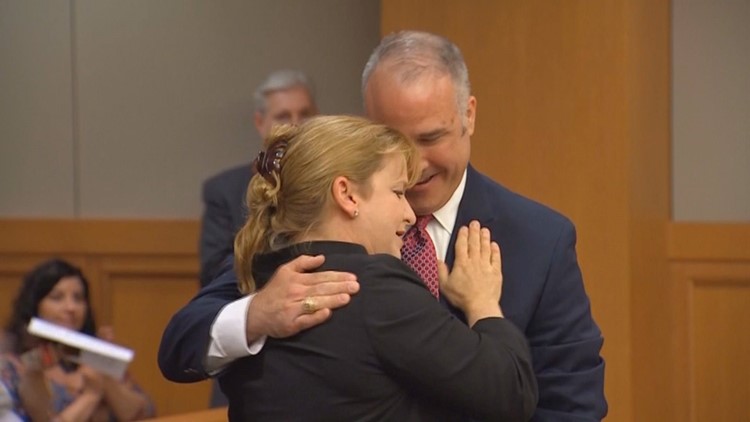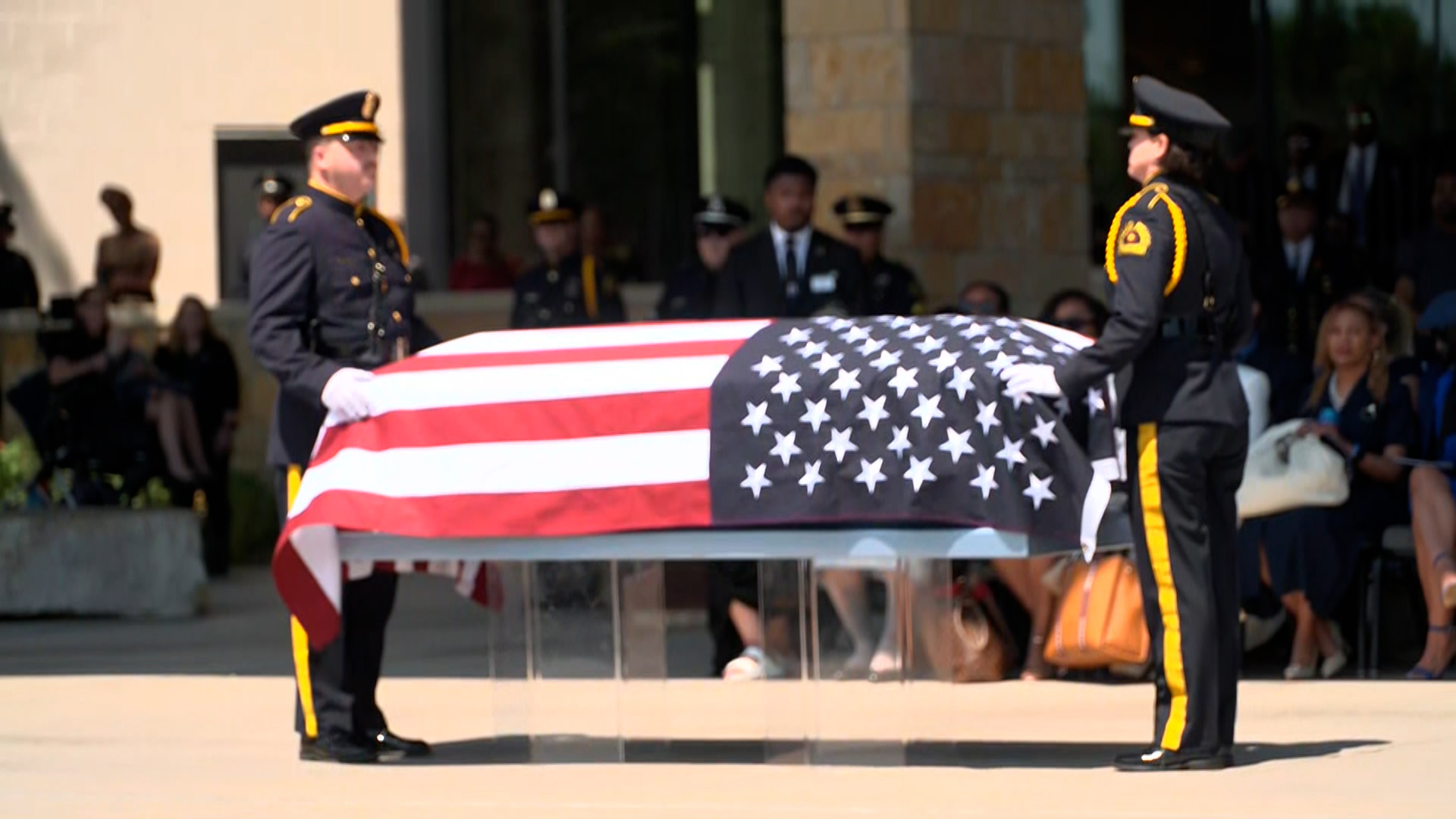COLLIN COUNTY, Texas — Collin County’s insurance company has agreed to pay $600,000 to settle a lawsuit filed by a former Collin County district judge who was wrongfully convicted of bribery.
An attorney representing former Collin County Judge Suzanne Wooten confirmed the settlement to WFAA Thursday afternoon. He said he planned to put out a statement later today.
Wooten filed a lawsuit alleging she was a victim of political persecution in 2018. She filed the lawsuit one year after she was exonerated.
As a result of the conviction, Wooten was forced to step down from the bench, her law license was suspended and her reputation and career were devastated.
"This lawsuit will expose the truth: that both the Collin County District Attorney and the Attorney General, using their hand-picked assistants, misused their authority for a political and personal vendetta against Judge Wooten," her attorney, Scott Palmer said, in 2018. "This abuse of power caused a manifest miscarriage of justice that demands that their actions be exposed and fully addressed so this can never happen again."
Wooten’s troubles began shortly after she defeated an incumbent district judge. She was the first person to defeat a sitting district judge in Collin County. Her victory shocked the political establishment and the win did not go over well with the courthouse powers that be including then-District Attorney John Roach Sr.
Roach was known at the courthouse for investigating his perceived political opponents.
The lawsuit alleges that one day after her primary win, the incumbent went to Roach and told him that he felt there was no way she could have won without cheating. Roach’s office soon launched an investigation and began grand jury hearings. The investigation was later taken over by the Attorney General's Office.
Five grand juries would hear evidence in the case. The sixth grand jury indicted Wooten, her campaign manager, a man named Dave Cary, and his wife.
Prosecutors claimed the Carys had funneled $150,000 to Wooten's campaign consultant in exchange for favorable rulings in a contentious child custody case.
There were records showing she paid her campaign consultant for the work done on her campaign. There were no records indicating any money from the Carys ever went to her.
Wooten said in a prior interview she did not know the Carys and had never even met the couple.
Wooten made no rulings in the case. She'd recused herself from the case within months of taking the bench.
Wooten later told WFAA she was stunned on that day in 2011 when the jury convicted her of nine felony counts.
"I just stood there. I cannot believe this happening," Wooten said in a 2018 interview. "I was convicted of making favorable rulings. And everyone stipulated that I had never made favorable rulings on that case because I didn't preside on that case."
After the jury came back with a guilty verdict, prosecutors gave her 10 minutes on whether to take 10 years of probation and forgo her right of appeal or let the jury decide her punishment. She was facing up to 20 years in prison.
"If I didn't have my husband and my children, I'd have said, 'Yeah, bring it. I'll go sit in prison. I'd be fine,'" she said in 2018. "But my family would not be."
In 2017, the Court of Criminal Appeals paved the way for Wooten's exoneration when they threw out the Carys' convictions. Her attorney soon filed a writ of innocence with the appeals court.
Wooten has since gotten her law license back and is in private practice.
She filed to run for district judge spot in 2020. She dropped out after the Collin County Republican party refused to put her name on the primary ballot, claiming she was ineligible because of her initial conviction even though she was later exonerated.
Wooten's attorney sent a statement to WFAA. Read it below: (mobile users, click here to view.)



